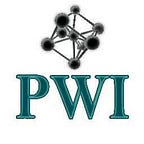30th Anniversary Celebration series | Susannah Haan— Former President of PWI Brussels
As part of celebrating the 30th anniversary of PWI Brussels, we talked to Susannah about speeding up the pace to bridge gender gap in leadership.
Susannah, it is a real pleasure to talk to you. Can you tell us about your time as the PWI Brussels President?
When we were developing the main objectives of our mandate, we asked all board members: why are you here? Why did you volunteer? The main motivation was helping other women, but also professional personal growth, supporting each other and having a safe place. The key challenge was that many PWI members were working in a very male-dominated environment, so having a network of like-minded people to come to and share experiences was very important. But there was also a second pillar, to improve gender balance in leadership.
It is still a hot and challenging topic today. What do you think are the biggest barriers to bringing women to leadership?
To make things move, we have to consider where the power is. And it is currently mostly with men. So, we have to ask ourselves, what do men need to see in order to help create that change, and not leave everything on women’s shoulders? A lot of women know some of the gender gap statistics, or know intuitively that there is a problem, but men often don’t know as much. So, there is that education lesson that needs to take place.
And how would you educate men about gender bias to make them act on it?
I think it is often a matter of how you present and frame the problem. Rational arguments and numbers tend to appeal more to male executives. Give them business cases, data, facts, costs — all that helps to put it in a factual, rational argument. Show the managers the statistics that prove they need to spend the money on improving gender balance. Some of this data already exists in the company and can be analysed. It’s about how you go about suggesting it to the management that it’s worth looking at it. If you can, link it to company’s mission and strategy. Who do we want to be? What do we want to achieve? If we want to attract the best talent, and 60% of university graduates are female, and thus this is something we need to factor in the company’s career development strategy.
It’s about finding the alignment, but also understanding personality and communication styles to get your point through. Everyone is different and you need to adjust a bit to your audience. It’s not just thinking about the “what” but also about “how” to communicate it. For example, different terminology will appeal to different people. Sometimes you might mean the same thing, but you need to use different terminology. If social justice doesn’t appeal to a business audience, talk about resilience, or public image, or evolving customer values. Talk about data to an analytical person, about a plan to an organiser and about relationships to a people-person.
Can you think about any current trends that can move gender balance up the company value chain?
There is currently a lot of attention given to Environmental, Social, and Governance (ESG) performance of companies, and I think that this is a big chance for women to get on board. Especially among investors, there’s a growing interest in evaluating ESG factors. For the moment, environment is the biggest focus, but investors also are starting to ask about the social side and how companies, especially now with COVID19, are treating its employees and its customers. And if there is interest from investors, it means there is money in it, so it becomes a priority for the company.
If the ESG trend continues, what do you think could be the next frontier for PWI Brussels in, let’s say, the next 30 years?
Next frontier… I think that one of the big frontiers is that within companies and society is that we have women, LGBT, minority groups, et., but since men have traditionally been the majority, they haven’t articulated their needs in the same way. In a sense, I feel they aren’t being heard that much, or that there has been a lot assumed about what they think. The male experience is like the female experience, you have women who are much more data-driven, you have women who are far more relationship-based, and the same applies to men. So, I think, there has to be an acknowledgement of the range of male experience in the same way as for women. And then there has to be the space for dialogue and compromise between men and women. And the question is: where does this happen actually? It is good to see the debates on engaging men take place under Anaida’s leadership. So perhaps in 30 years, there would also be a thriving men’s membership section at PWI Brussels?
***
More about Susannah
Lawyer by training with wide experience of public policy, Susannah currently holds a portfolio of roles including as Advisory Board Member of Professional Women International Brussels. She has worked in London, Moscow and Brussels.
Susannah is interested in making capitalism work for its end-users, via better management of ESG externalities (environmental, social & governance), especially gender-proof growth and gender balanced leadership. She has worked for listed companies, investors, government, and trade associations, and has spoken publicly on business issues including women entrepreneurship and the business case for equality, corporate governance, investor stewardship and capital market regulation. She has been quoted in the following publications: Financial Times, The Times, Politico, Accountancy Age, BBC, The Independent and The Lawyer.
